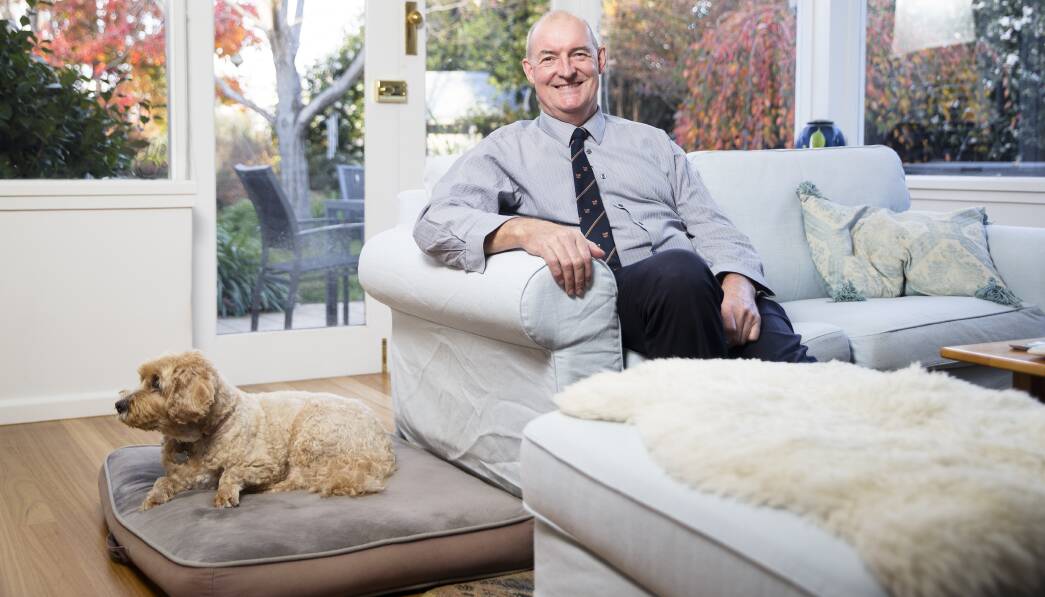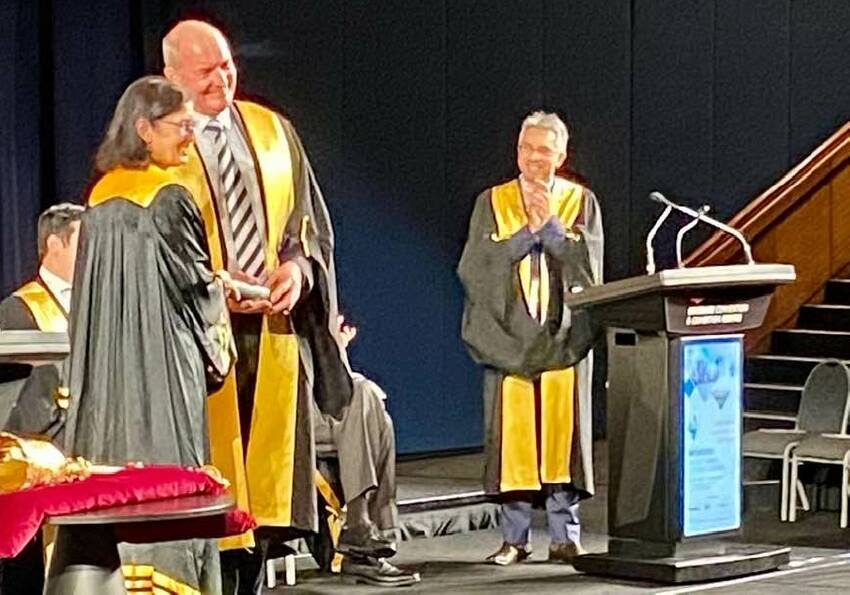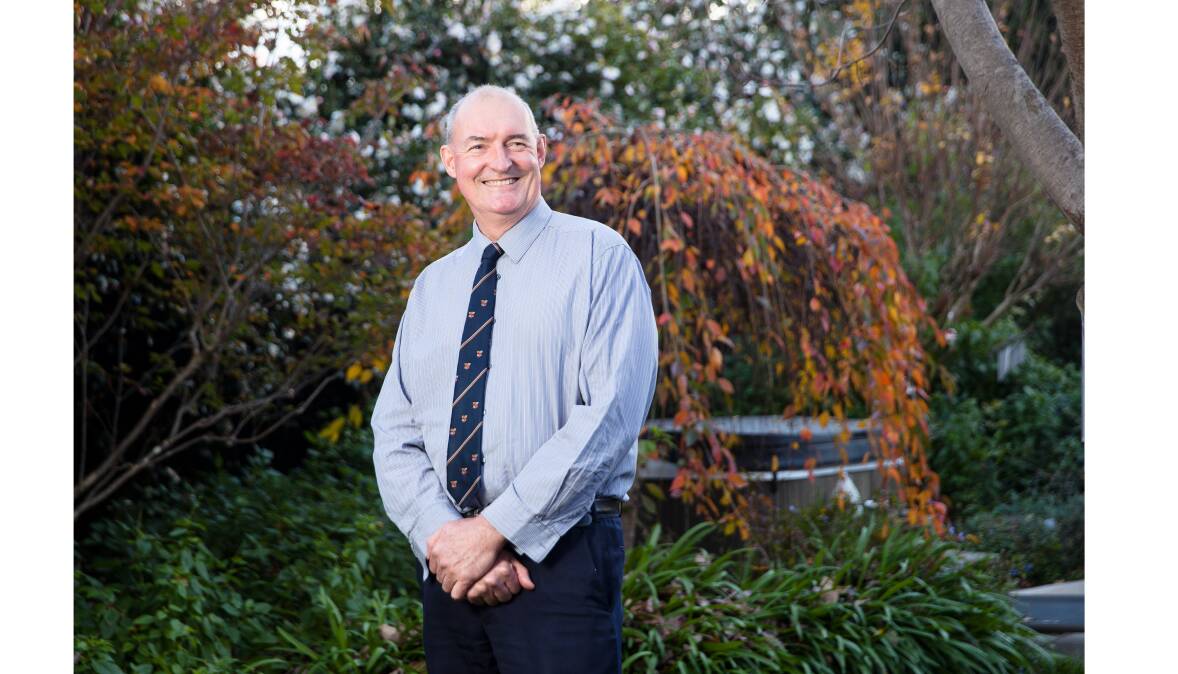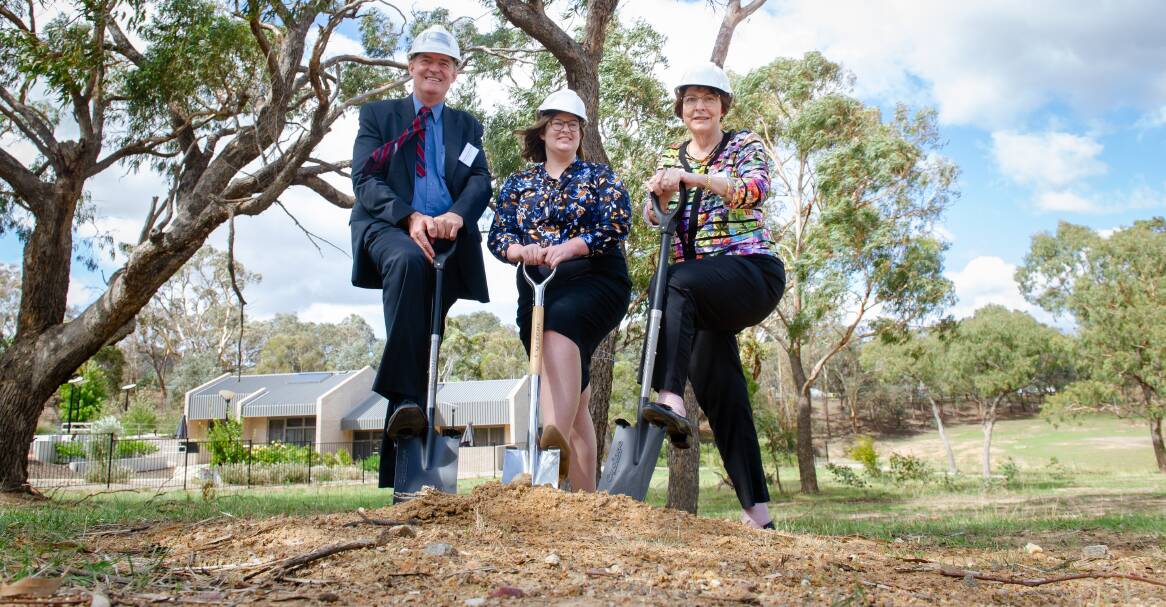
Canberra orthopaedic surgeon Professor Paul Smith is not one to make a fuss but this is pretty big - he has received the Award for Excellence in Surgery from the Royal Australasian College of Surgeons, putting him at the top of his field amongst peers across Australia and New Zealand.
The 63-year-old, who is also the chair of the John James Foundation, received the award at the college's Annual Scientific Congress, only the second orthopaedic surgeon to be recognised.
He received the award for showing "the highest level of surgical achievement by world standards, leadership in the field, innovation" and the "highest standards of surgical ethics".
"I'm just a bit gobsmacked and absolutely humbled that I would be someone they would consider," he said on Friday, still reeling from the honour.
Based in Canberra since 1998 after doing his studies in Adelaide and overseas, Professor Smith combines a career of research and surgery.

He has performed more than 7000 hip and knee replacement surgeries "and a hell of a lot more other stuff" over his career, working from the Canberra and Calvary John James hospitals. He suggests orthopaedic surgery may not be glamorous but it was "game-changing surgery, no question".
"You come off your bike and you break your leg, you need an orthopaedic surgeon. Someone has a terribly arthritic joint that they can't walk on, that's something we can replace. We're kind of nature's fix-it guys in terms of the carpentry side and the technology in what we do is quite extraordinary now."
Professor Smith is married to Claire, who owns The Essential Ingredient in Kingston, and the couple has four children. They came to Canberra nearly 25 years ago and love it.
"We initially thought we'd give it a try and if didn't work out, we'd give it a year and go back to Adelaide," he said. "But it kind of worked out. The opportunity was unrepeatable at that stage to be involved in so many greenfields projects."

Professor Smith started private and public practice and also set up the Trauma and Orthopaedic Research Unit, with laboratories at both the Canberra Hospital and the John Curtin School of Medical Research.
"We do a very broad range of orthopaedic clinical research. We've done a lot of knee surgery outcome research. Trauma outcome research. We're into device development. In our lab, we're looking at a whole bunch of intelligent implants and stem cell research, research to prevent infection. It's a really broad canvas that we paint on," he said.
"We've now produced about 20 higher degrees through our research unit, so that's PhDs, masters, honours over the last 15 years. So we're really very productive."
He has been chair of the John James Foundation for seven years. It is the ACT's largest medical charitable organisation, using funds from the sale of the Calvary John James Hospital and other assets to bankroll philanthropic causes. The foundation's projects have included the John James Village in Garran, a home-away-from-home for people with life-threatening blood cancers, and an early intervention autism centre, which are both located in Garran.

"We've managed to put out some really significant community-impact projects and the opportunity to put something back in the community, you've got to do that. That's a real joy to work with a whole bunch of people who are basically committed to doing 'good'," he said.
Professor Smith was made a Member of the Order of Australia (AM) in the 2020 Australia Day Honours for significant service to orthopaedic medicine as a surgeon, and to medical administration.
He says he could not have achieved anything without the support of others.
"I think I'm extraordinarily fortunate to work in a field that has given me so much. I received my training in medicine, in surgery, essentially through the public hospital system and gives you the skills to go on and have a career," he said.
"I count myself as an enormous beneficiary of the public system in Australia and I think I have an obligation to give back to that system and try to benefit the community through my training.
"I'm very fortunate to work with a group of excellent colleagues who tolerate me because I spend far too much time doing research and I am very fortunate to bring together an excellent team of research people who think my crazy ideas are worth pursuing."

.png?w=600)





